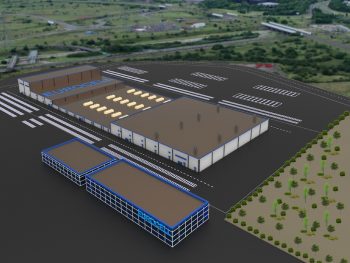Netherlands wins out over UK and Spain in bid for Eurocell gigafactory
Anglo-Korean battery manufacturer Eurocell says it’s in the final stages of discussions to build its first European gigafactory in the Netherlands.

Eurocell said it’s in advanced discussions with authorities and the NOM investment and development agency in the Netherlands for its inaugural European gigafactory
The company announced in February this year that it was looking to build a factory to supply ‘production-ready’ EV batteries in just 12 months and had a shortlist of the UK, the Netherlands and Spain – the final choice was “heavily dependent on gaining the right level of central government support and investment”.
The Netherlands has now won out over the other locations, due to the country’s pre-eminence in tackling climate change along with strong support from the Government.
Nick Clay, chief commercial officer, Eurocell EMEA, explained: “In its Climate Policy, the Netherlands outlines its ambition to lead Europe in the fight against global warming with a comprehensive strategy to reduce emissions across industries.
“With rapid expansion plans in Europe, Eurocell is encouraged by the positive engagement we have had with both the Dutch government and the NOM investment and development agency for the Northern Netherlands over the last few months. As we enter the final stages of discussions, we are confident that we will be able to confirm the exact location of our first European gigafactory in the near future.”
Its $800m (€785.6m / £663.9m) investment will create a gigafactory capable of producing advanced battery cells at scale by early 2023 for existing European customers and ramping up to more than 40 million battery cells per year by 2025.
It’s the first stage of a $2bn (€1.96bn / £1.66bn) investment plan to supply batteries to the fast-growing energy storage sector.
The firm said its fast-paced approach is the result of having a proven battery product which is verified and validated for scaled-up manufacturing.
The company also claims a considerable technical advantage for its batteries, said to last more than 10 times longer than conventional lithium-ion cells, “making them far more sustainable, with no ‘end-of-life’ issues and perfect for ESS applications given it is also 100% safe”.

